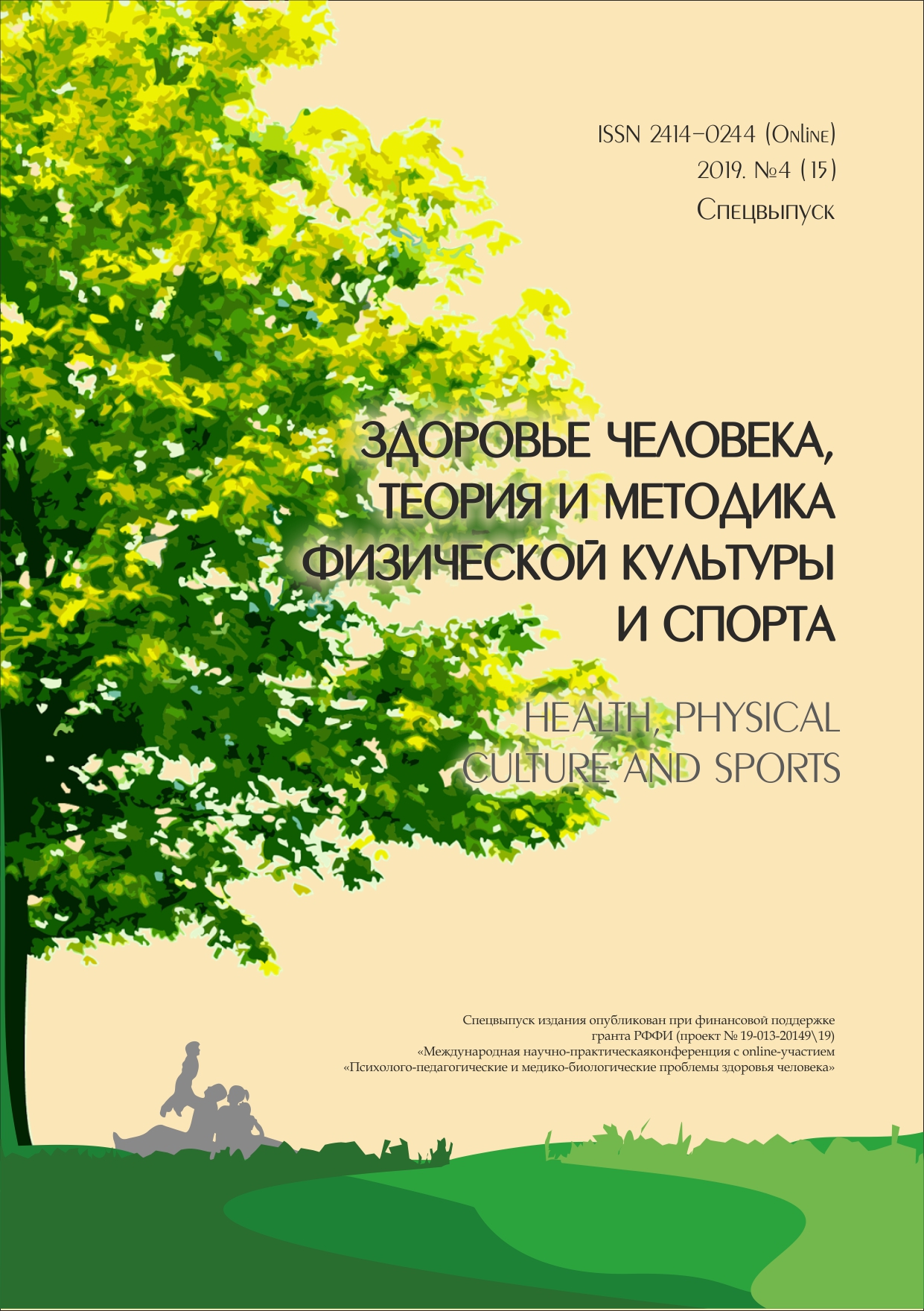PHYSICAL IMAGE OF I STUDENTS IN THE CONTEXT OF PSYCHOLOGICAL HEALTH
Abstract
Ɗe subject of the research presented in the article is the image of the physical Self as a speciĘc phenomenon of self-awareness. Ɗe image of the physical Self is considered as an integrative process in the context of the psychology of health. In this study, we studied the self-attitude to the image of the physical Self in the process of comparing the subject’s characteristics of external attractiveness with a social standard, in the process of rećective self-esteem. Ɗe results of a pilot project focused on the study of qualities that indirectly reveal the subjective representation of a person about his body are presented. Ɗe article shows that the images of the physical self are considered in psychology as fundamental elements of self-determination. Ɗey have a systemic eşect on how the individual processes information regarding his image. Ɗe attitude towards oneself at the level of biological health rećects the projection of the attitude towards one’s self at the level of psychological health. Ɗe subjective image of the physical self of the person contains ideas about how to achieve the desired result, plans and strategies. Ɗe results of a pilot study focused on qualities that indirectly reveal the subjective representation of a person about his body are presented. Ɗe empirical base of the study was 82 students who did not have a pronounced somatic or mental pathology, aged 18 to 20 years, of which 64 were girls and 20 were young men. Mathematical processing of the research results was carried out in the STATISTIC program. Using the Student’s t-criterion, three groups of respondents were compared: respondents who exercise regularly and practicing sports, respondents who plan to exercise, and respondents who do not plan and do not want to exercise and do not exercise. A correlation analysis was conducted on the types of attitude to the body between girls and boys, which revealed dişerences in each group. Ɗe results of a pilot study showed that high assessments of functional characteristics positively correlate with the developing attitude of students to their own bodies, the index of psychological health of the person and have a high personal value.
Downloads
References
Выготский Л. С. Психология развития человека. М.: Смысл; Эксмо, 2005.
Ананьев В. А. Основы психологии здоровья. Книга 1. Концептуальные основы психологии здоровья. СПб.: Речь, 2006.
Бернс Р. Развитие Я-концепции и воспитание: пер. с англ. М.: Прогресс, 1986.
Волкова Т. Г. Анализ образа Я как продукта самосознания личности // Современная психология: материалы Междунар. науч. конф. (г. Пермь, июнь 2012 г.). Пермь: Меркурий, 2012. С. 1–4.
Желателев Д. В. Образ тела в самосознании старшеклассника и оценка его педагогом: дис… канд. психол. наук: 19.00.07. СПб., 1999.
Лаврова О. В. Концепция телесности в интегративной психотерапии // Журнал практического психолога. 2006. № 1. С. 5–8.
Никитин В. Н. Психологическая коррекция неадекватного образа «Я» в подростковом и юношеском сознании методами телесно-риентированного подхода: дис. … канд. психол. наук: 19.00.05. Ярославль, 2002.
Николаева В. В., Тхостов А. Ш., Зинченко Ю. П., Арина Г. А. Психосоматика: телесность и культура. М.: Академический проект, 2009.
Менегетти А. Психосоматика / пер. с итальянского. М.: Онтопсихология, 2009.
Джемс У. Д. Психология / под ред. Л. А. Петровской. М., 1991.
Лэнгле А. Самость во плоти // Экзистенция и психосоматика. Консультативная психология и психотерапия. 2015. № 1. С. 7–69.
Тхостов А. Ш. Психология телесности. М.: Смысл, 2002. С. 67–180.
Соколова Е. Т. Исследование образа тела в зарубежной психологии // Вестник МГУ. 1985. № 4. С. 39–49.
Роджерс К. Взгляд на психотерапию. Становление человека. М.: Прогресс, 1994 [Электронный ресурс]. URL: http://psyjournals.ru/psytel2011/issue/44584_full.shtml
Леонтьев Д. А. Психология смысла: природа, строение и динамика смысловой реальности. М.: Смысл, 2003.
Вересов Н. Н. Переживание как психологический феномен и теоретическое понятие: уточняющие вопросы и методологические медитации // Культурно-историческая психология. 2016. Том 12, № 3. С. 129–148. doi:10.17759/chp.2016120308.
Кислых А. А. Взаимосвязь субъектности и самоактуализации студентов на разных этапах обучения // Вестник психологии и педагогики Алтайского государственного университета. 2018. № 2. С. 25–30 [Электронный ресурс]. URL: http://journal.asu.ru/vfp/article/view/4225
Черкашина А. Г. Стандартизация методики исследования самоотношения к образу физического Я (МИСОФ) // Вестник Самарской государственной академии. Серия «Психология». 2013. № 1 (13). С. 94–106.
Станковская Е. Б. «Моё чужое тело»: формы современного отношения женщины к себе в аспекте телесности // Мир психологии. 2011. № 4. С. 112–119.
Козлов А. В. Структура психологического здоровья: психосемантический подход // Вісник Харківського національного університету імені В. Н. Каразіна. Серія: Психологія. 2011. № 937, вип.
С. 130–133. [Электронный ресурс]. URL: http://nbuv.gov.ua/UJRN/VKhIPC_2011_937_45_31
An author should not normally publish manuscripts describing essentially the same research in multiple journals or publication venues. Such redundant publication is generally considered to constitute unethical publishing behavior, and if discovered may result in a manuscript under consideration being rejected, or a published article being retracted.
Authors of manuscripts reporting on original research should present an accurate account of the work performed, accompanied by an objective discussion of its significance. Underlying data should be represented accurately in the manuscript. The manuscript should contain sufficient detail and references to permit others to replicate the work. The fabrication of results and the making of fraudulent or knowingly inaccurate statements constitute unethical behavior and may be cause for rejection or retraction of a manuscript or published article.





